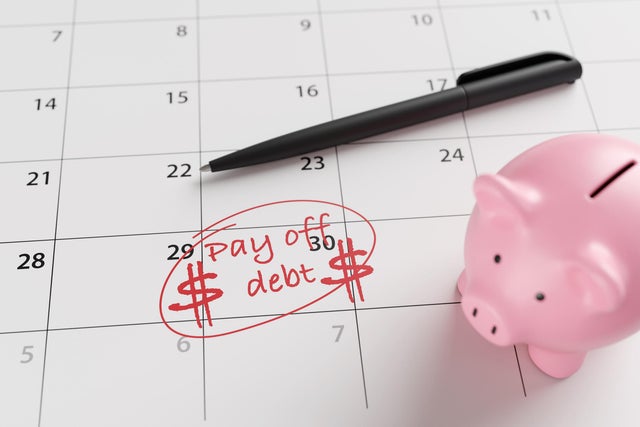Can debt collectors take you to court if you are paying them?
If you fall behind on your bills, making a few stressful calls and negotiating with the debt collector could lead to working out a payment plan. It's not an ideal scenario, of course, but once it's done, the calls have slowed, you're making small payments each month, and, for the first time in a while, things feel a little more manageable. In other words, it feels like you've taken a step toward getting your debt under control.
Still, a nagging question lingers: Now that you're making payments, are you protected from further debt collection actions? After all, debt collectors have many tools at their disposal to try and recoup what's owed, including filing a lawsuit over your unpaid balance. So, could the debt collector still sue you for the money you owe? Or does the payment plan protect you from this type of escalation?
This type of uncertainty is common when you're behind on your debts, and the relationship between making payments on a debt and facing a lawsuit isn't always as straightforward as you'd hope. So, can a debt collector file a lawsuit against you if you're actively making payments? That's what we'll examine below.
Learn how to take the first step toward getting rid of your high-rate debt.
Can debt collectors take you to court if you are paying them?
While setting up a payment plan with a debt collector is often a smart move, the reality is that doing so doesn't automatically stop debt collectors from pursuing legal action. In general, debt collectors retain the right to sue for the money you owe until the debt is fully paid, unless you've signed a formal agreement that states otherwise.
And, many repayment plans are informal, so even if you have an agreement in place, it may not offer the protections you expected. For example, you might agree over the phone to pay a set amount on the debt each month, but without written terms, that arrangement doesn't legally prevent the collector from filing a lawsuit. Debt collectors may still choose to sue if they want to secure a judgment, which gives them stronger tools like wage garnishment or bank levies if you default later on.
Timing also plays a role. If a debt is nearing the end of the statute of limitations, which is the legal deadline for filing a suit, a debt collector may decide to sue to preserve their ability to collect on what you owe. In some states, making a payment can also restart that clock, extending the debt collector's window to pursue legal action. That's why understanding both the state and federal rules is essential before agreeing to make any payments.
Find out what debt relief strategies are available to you now.
How to protect yourself from legal action by debt collectors
If you've committed to a repayment plan on your delinquent debt but want to minimize your legal risks, there are some steps you can take to try and protect yourself. Here's what to do:
Put the agreement in writing
Ask the debt collector for a written agreement that clearly lays out your agreed-upon payment terms and confirms they won't pursue legal action as long as you stay current on the plan. Not all debt collectors will agree to do this, but having that type of documentation can offer valuable protection if they do.
Follow the plan exactly
Any missed or reduced payments you make can give debt collectors another reason to sue, and depending on how much you owe, the statute of limitations and other factors, they may opt to do so. So, make sure every payment is on time and keep detailed records of your transactions.
Explore a lump-sum settlement
If you can come up with the funds to do so, offering a lump-sum settlement may fully eliminate the debt and the risk of a lawsuit. Debt collectors often prefer lump sums because they resolve the account quickly, so it's worth considering if you can afford it. Just remember to get the agreement in writing before sending payment.
Know your rights under federal and state law
Debt collectors must follow both federal and state laws. If a debt collector sues after formally agreeing not to or engages in illegal tactics, you can report them to state or federal agencies or speak with a consumer attorney about your options.
Consider professional debt relief help.
Debt management programs or debt settlement services can provide more structure, and sometimes better legal protection, than informal payment plans, so it may be worth chatting with a debt relief expert about your options. If your debt load is overwhelming, filing for bankruptcy may be another option you have to stop collection actions altogether.
The bottom line
Making payments on your delinquent debt is a positive step, but it's not always the shield people think it is. Without a formal agreement in place, debt collectors can still use the courts to strengthen their position, even if you've been paying regularly.
To avoid being caught off guard, get clear terms in writing, know your legal rights and consider more formal debt relief options if needed. And if you do receive a court summons, respond promptly. Being proactive now can help you stay in control and keep a difficult situation from escalating further.
